Through the Eyes of the DNR
Through the Eyes of the DNR
Top Ten Most Common Violations Seen During Hunting Seasons
So, you went to school and you made it happen. After, you saw what you wanted, you jumped through the many hoops, and luckily became one of the few hired in this much desired profession you went through a lot more training and though some of it concerned you, as to how it would be implemented on the job, you sucked it up and passed with flying colors. No one said it would be easy and, after all, it’s a dangerous job. Then, came the badge. You were now a game warden as your father used to call it. One of the few who would go out into the great outdoors and ensure that the symbiosis between man and his environment would be healthy and safe for all concerned.
You were now the ‘gatekeeper’ of conservation. One chosen to ensure that regulations were adhered to, conservation policies were enforced and the public educated to the laws so that all to come would continue in the stewardship of the great outdoors. It is a high calling.
Now, you’re witnessing your first deer season. You’re tense and nervous but, you have a job to do and so, you step from your vehicle and head into the timber. A perfect day to open the season; you see a group of hunters and head their way. The first thing you notice is the conversation, or the lack of one. The hunters have stopped talking and appear nervous. You offer a greeting and not one hand reaches for their wallet, to prove that they have a right to be there with weapons. As you begin to ask for licenses your blood freezes in your veins; a couple of the weapons are pointing at you.
I made that up but I doubt there is much fiction in it.
When Ed Kocal and I were chatting this past summer, I enquired as to whether he would be interested in offering up a top ten for publishing. You see, Ed and I go back a long way. Since I’m in the outdoors almost daily, it is no wonder that I’ve offered my licenses to Ed on more occasions than either of us could count. I have never made him ask. It’s a small thing but I like to think he appreciates this; my small attempt to make his day a bit better or easier. I’ve never waited for him to ask and quite frankly would not offend him and yet, on the other side of that coin, I’d be offended with any officer who failed to do so.
It’s their job to ensure that I’m fully within the law in this regard. I immediately offer to open my bucket to show the contents. I pull up the stringer to show off my small harvest or open my game vest to show its contents, too. All this I do while making small talk and beating them to the punch.
You think you’ve got it rough, be a DNR Officer for a day.
So, I was not surprise when Ed sent me an email. He explained that he’d called around and after several of his colleagues had contributed, had come up with their top ten. My lack of surprise was their choice for number one we discussed it above. The total lack of muzzle control in the field. There is no reason to have a loaded gun, ready to go at the proper finger pressure, and pointed at another human being. It is in my estimation, inexcusable. When Ed, or any other DNR Officer, would come around the corner, wherever we met in the woods, I immediately broke the action open, whether my double barrel, semi-auto, bolt action or pump. I never failed to give him that courtesy. When it comes to conservation, you are still innocent until proven guilty, but as a DNR Officer it is there roll to find the guilty and have them prove their innocence. And maybe that is why DNR Officers get such a bad rap. We citizens of this great land always figure that it is the other way around and this creates a terrible environment whereby our very actions hint at the proof in what I say, we dare the officer to prove we are guilty. It does not have to be so.
Common courtesy and common sense; the golden rule and walking a mile in the other man’s shoes…all of these are left at home it appears, whenever we encounter our local DNR Officer. Our perceptions need some work. If we act as though we are being intruded upon when asked to show that we are performing legally in the field or, on the water, everybody has a bad day and bitterness reigns.
It is up to us to adhere to the letter of the law in the great outdoors. Ed and all of his associates are there to embody that law; the law that makes sure we all are properly harvesting within the laws of Iowa. After all, no one likes a cheater. But, we can’t help but feel that we are being cheated in this respect. Don’t take it personally. Prove you’re legal with a smile. Carry the regulations in your vehicle; study them…know them. When you see others having difficulty with them, ask them if they need a copy. If this does not suffice with them…leave…call Ed. I have his number on speed dial and a few others that wear the DNR badge with pride. They are right there, on my phone and I won’t hesitate to call them. You’re either part of the solution, or part of the problem. After reviewing the following list and giving each of the points some careful consideration, I strongly believe that you will always be the former and never the latter.
I wish you the best in the timber this year. And if you see Ed, give him a wave, break your action and produce your license. He deserves a break; after all, he’s doing a job that none of us would truly care to have to contend with if it were our responsibility.
Top Ten Most Common Violations a DNR Officer Encounters in the Field:
• A hunter not practicing muzzle control of their firearm while being checked.
• A hunter’s dog that is aggressive, or bites.
• Hunters that think they can party hunt all game. Party hunting is allowed during the whitetail shotgun seasons and January antlerless season. Any other deer season you must shoot and tag your own deer. As for other game, this is true as well. In other words, your daily limit is your daily limit.
Deer hunters that hunt over bait; illegal, not ethical, not necessary in this breadbasket that feeds the world. It can contribute to disease spread in wild animals.
• Hunters leaving litter. This is actually a much BIGGER problem with anglers.
• Deer hunters using the tag of another. This is poaching however you look at it and it will cost them a lot of money when they are caught.
• Hunters not maintaining separate bags while hunting together. You are responsible for knowing your current tally of game for the day and anything in your possession or control is assumed to be yours. We see this with waterfowl hunters too often.
• The occasional hunter or trapper that disposes of their unusable carcasses or hides on public property, such as a road ditch. This is littering and you will be fined for it when caught. This also makes hunters and trappers look bad, especially in the eyes of non-hunters and non-trappers.
• A person picking up a road killed deer without first obtaining a salvage tag. Or, a person removing the antlers from a road kill. You must take the whole deer.
• Trespass. You must have permission from the landowner to hunt, fish, trap, etc. on any private property. This includes mushroom hunting, ATV and snowmobile enthusiasts. If you are caught, and many people are by cameras, you will have to go to court and face a fine. In addition, if you harvested a deer while trespassing, you face a civil penalty, which starts at $1,500 and can go as high as $20,000.
• Diligence, courtesy, common sense laced with mature actions. It is a tall order and could it be that due to this fact, hunters are becoming a dying breed? Take pride in this fact and your discipline will always pay dividends on the long road we find and appreciate in the great outdoors we call Iowa.

